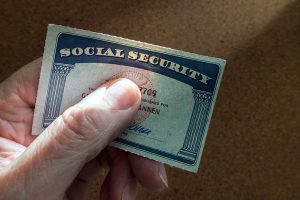Hidden Banking Fees to Avoid
Date: June 27, 2016
The sound of a leaky faucet is not simply annoying — it represents wasted resources and money going down the drain. As a savvy consumer, you can avoid a similar loss in your banking services when you know where to plug the leaks. Some of the worst offenders silently siphon your cash in the form of hidden fees, but knowing more about the fees can help you avoid these losses.
Maintenance Fees Add Up
Maintenance fees added onto your account may seem like a product that is intended to benefit you, but even a modest $10 monthly fee adds up over time. You can often avoid maintenance fees entirely by meeting certain requirements, such as maintaining minimum monthly balances or having multiple accounts with the same financial institution. When monthly fees pop up, ask your bank if there are other plans that fit your needs without the constant drip.
Foreign Transaction Fees Are Expensive
When you shop in another country, currency conversion can add to your travel costs, no matter if you use cash or credit. That’s normal and to be expected. But your bank may be adding additional conversion fees, citing the greater risk of fraud on international transactions.
These conversion fees are a percentage of the purchase price, usually less than 5 percent. This fee adds to the cost of everything you buy. Even if you make a transaction in U.S. dollars, which is not subject to currency conversion, your bank may still charge a fee if the transaction originated with a foreign bank. You can help avoid this unnecessary money drain by using credit cards that expressly exempt foreign transaction fees.
Replacing Lost Debit Cards
Replacing a lost debit or credit card is another area where banks can increase the financial drain. This is understandable, since the banks bear both manufacturing and administrative costs when replacing lost cards.
But if you view replacing your card as merely the bank’s cost of doing business with you, speak up. Like many other bank charges, they may be able to waive the fee for your replacement card. You may find your bank lends a sympathetic ear in order to maintain your goodwill, especially if this is the first time you’ve misplaced it.
Overdraft Charges and Returned Check Fees
When a check you’ve written bounces, it’s likely due to your own oversight, so a bank charge can be expected. But you probably won’t be happy to pay the overdraft penalty, which averages $34, according to CNN Money.
When someone else’s check bounces in your account, however, it’s harder to understand why your bank charges you a returned deposit fee. Most of the larger banks charge this fee, but credit unions and smaller banks may not. If this is something you encounter regularly — perhaps through a hobby business — you could save money by choosing a banking institution that does not charge a returned check fee.
Quicken has made the material on this blog available for informational purposes only. Use of this website constitutes agreement to our Terms of Use and Privacy Policy. Quicken does not offer advisory or brokerage services, does not recommend the purchase or sale of any particular securities or other investments, and does not offer tax advice. For any such advice, please consult a professional.


